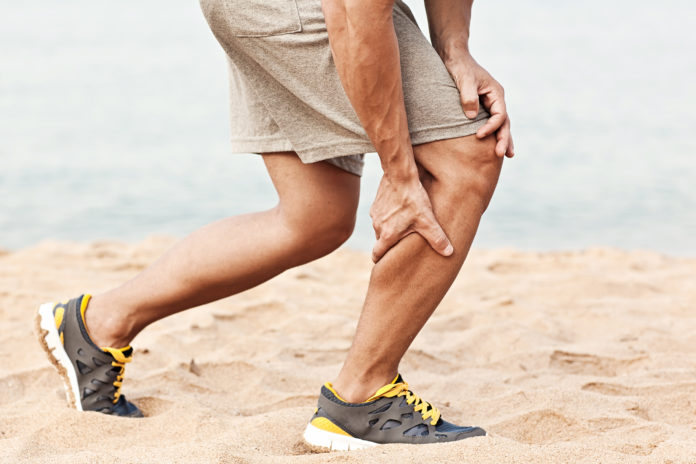Overview
A muscle strain is a common injury caused to the muscles or to the tendons, the tissues that connect muscles and bones. Also known as a muscle pull, it refers to muscle damage due to undue pressure put on the muscles during routine activities, sports, or work tasks.
What Causes Muscle Strains?
Most muscle strains occur from a variety of causes ranging from overstretching muscles beyond the limit or even a damage or tear to the muscle . An acute form of muscle strain can occur unexpectedly as a result of trauma or injuries. Usually, it occur due to the following reasons:
- Weight lifting without proper form and body technique
- Running or jumping
- Poor posture
- Lack of physical activity
- Holding back or neck in an awkward position for a longer duration
- Poor flexibility
- Overexertion
- Fatigue
- Participating in contact sports like football, hockey, soccer, boxing and wrestling, can increase your risk.
Repetitive injuries can lead to chronic muscle strain because of high stress caused to muscles with the same muscular movements.
Signs & Symptoms
The common symptoms are:
- Sudden onset of pain and tenderness in the affected area
- Muscle spasms
- Swelling
- Stiffness
- Fatigue
- Weakness
- Bruising, bleeding (rarely)
- A feeling of the muscle being “knotted-up”
- Soreness
- Limitations in motion
When to See a Doctor?
Mild strains can get treated using immediate first aid remedies. Contact your physician immediately if you experience worsening pain after an injury or trauma. Seek professional help if home remedies for pain management do not provide ease or relief from the symptoms of muscle strain.
Call 1860-500-1066 to book an appointment
Risk Factors
- Participation in sports activities such as football, soccer, wrestling, and boxing can increase your risk.
- Legs , ankles and elbows are susceptible to muscle strains more than other body parts .
- Being sedentary at a desk, lifting or throwing objects without proper technique of body form and having a slouch while sitting can increase the risk of muscle strains.
Complications
Muscle strain can cause tear or damage to the muscle fibers. The tearing of muscles can cause damage to the minor blood vessels in the surrounding area. It can lead to local bleeding, bruising, and pain.
Diagnosis
Your physician is likely to conduct a physical examination and ask you to move your arms, neck, shoulders, and legs to determine the condition of the affected . Examination of muscle strain involves assessment of swelling, rupture, tenderness, and intensity of pain. An ultrasound scan can also identify the areas and types of soft tissue injuries. X-ray or blood tests are often not required unless the cause of strain is trauma or infection.
Prevention
It is advisable to practice regular stretching and strengthening exercises before sports or heavy work as a part of a physical conditioning program. Exercise can help minimize the risk of muscle strain and prevent injuries.
You can also decrease the chances by taking the following measures:
- Do not sit in one position for a longer duration
- Maintain an appropriate posture while standing and sitting
- Lift heavy objects carefully
- Prevent the risk of falls
- Wear shoes during physical activity and sports
- Maintain a healthy weight
- Practice stretching and warm-up before any physical activity followed by cool down and stretching .
Management of Muscle Strains
Mild to moderate strains can be treated with home remedies and anti-inflammatory medications like paracetamol and ibuprofen. Medical experts often prescribe pain relief medications and recommend physical therapy exercises to prevent muscle strains. In extreme cases, if a muscle strain leads to tear of tendons, surgery is required to repair the damaged tissue structures and restore the normal functioning of muscles.
First Aid for Muscle Strains: The R.I.C.E Approach
Muscle strains often get treated at home with rest, ice, compression, and elevation (RICE).
Rest: Avoid unnecessary movements if they cause pain. Too much rest however , can cause weakness in the muscles and delay healing.
Ice: Apply an ice pack or ice wrapped directly in a towel immediately after an injury to the muscle. It will help to minimize swelling. Repeat the application of ice frequently for symptomatic relief.
Compression: Usually, an elastic bandage is wrapped around the affected area until the swelling reduces. Do not wrap the bandage tightly as it can impair blood circulation.
Elevation: Keep the injured muscle elevated above the level of your heart. It can ease pain and enhance blood circulation in the affected area.
Seek medical help if your pain worsens and the muscle strain becomes severe.
Conclusion
Muscle strains can occur unexpectedly as a result of trauma or injury. It is advisable to avoid the risk factors that can contribute to muscle strains. Mild muscle strains can be treated at home. Regular exercise can keep your muscles healthy and strong. It is vital to understand that your body has certain limitations. Stress to muscles in an intolerable manner can lead to major injuries and severe complications if left untreated.
Frequently Asked Questions (FAQs)
I have pain in my muscles after playing a sport. How do I heal it?
You are likely to have muscle strain. Seek medical help if your pain is unmanaged. Use preventive measures such as warm or cold compress and take rest.
How will a doctor assess muscle strain?
Physical examination is usually helpful in the diagnosis of strain. Tests are usually not needed though sometimes Ultrasound examination is done to diagnose the extent of soft tissue injuries .


















